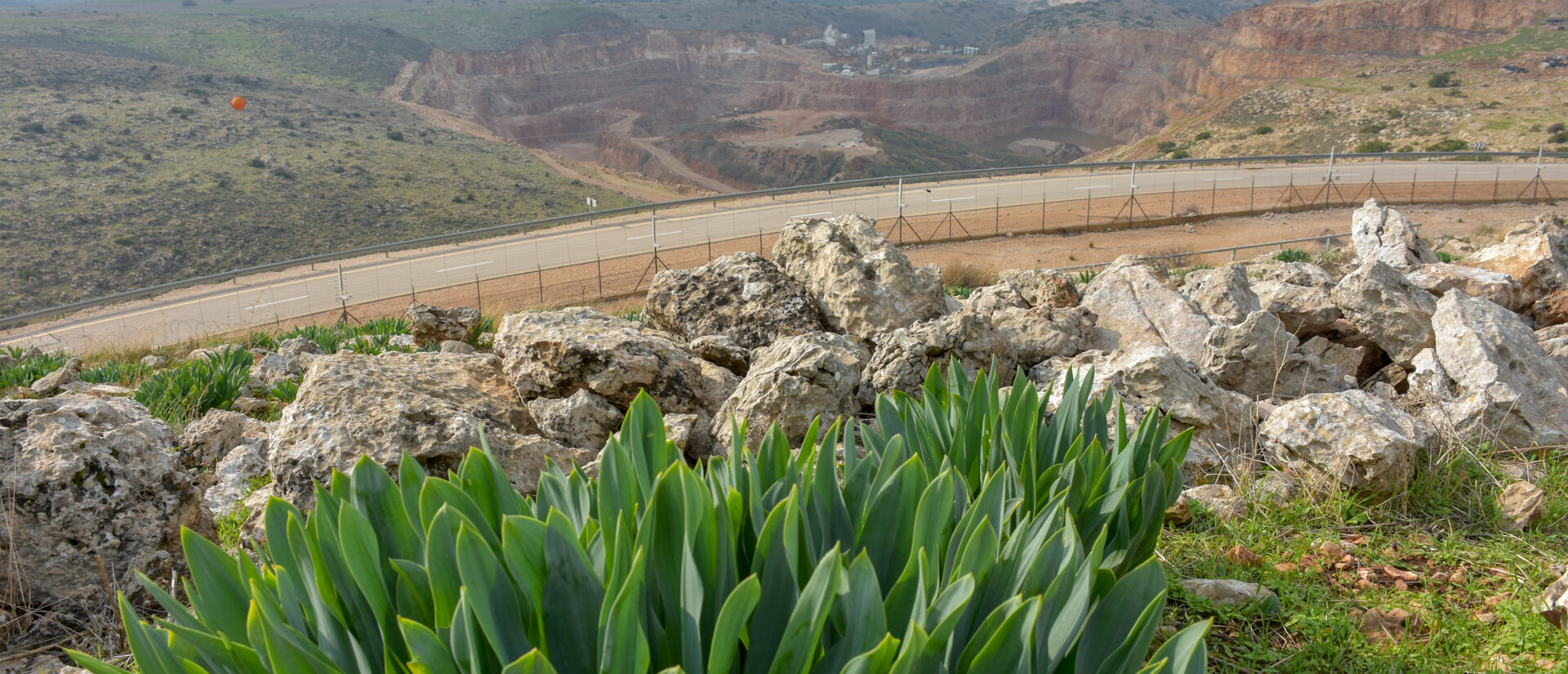
The unlawful exploitation of Palestinian stone
HeidelbergCement in the Occupied Palestinian Territory
Palestinians in the Occupied Palestinian Territory (OPT) have been subjected to ongoing Israeli occupation and colonisation policies depriving them of their basic rights. Among others, this has been manifested in the unlawful exploitation of natural resources in the OPT, resulting in a wide array of human rights violations and intensifying the de-development and capture of the Palestinian economy by the Occupying Power and business enterprises.
A summary of this report is available in English, German, Dutch and Arabic(opens in new window) .
Israeli and multinational corporations operating and active in the OPT under Israel’s administration are knowingly complicit in breaches of international law against the occupied Palestinian population. Unsurprisingly, these companies have benefited from the already-existing culture of impunity for Israel’s prolonged occupation and the lack of (the enforcement of) regulatory frameworks under international law, namely humanitarian and human rights law, for businesses operating in the OPT to avoid liability and whitewash their unlawful activities – accompanied by the lack of political will of third States in this regard.
This content is available after accepting the cookies.
View on Youtube. Opens in a new window
The Nahal Raba stone quarry, operated by the German multinational HeidelbergCement through its subsidiary Hanson Israel, provides a clear example of corporate complicity in grave breaches of international humanitarian law that may amount to internationally recognised crimes against Palestinians. The case study in this report documents the direct and indirect implications of the quarry and its activities in the past 13 years on the lives of Palestinian communities living nearby as well as the Palestinian population as a whole.
This research report is part of the Mind the Gap project, which is coordinated by SOMO. Mind the Gap is a four-year project in which consortium partners from 9 countries research how companies avoid responsibility for human rights abuses, collaborate with civil society to improve corporate accountability and engage with policy makers to close governance gaps that enable companies to avoid responsibility. The overall aim of the project is to increase respect for human rights and effective access to justice and remedy for individuals and communities whose lives and livelihoods are affected by multinational corporations.
Do you need more information?
-

Lydia de Leeuw
Researcher
Partners
Publication
Accompanying documents
Related news
-
 CSDDD Datahub reveals law covers fewer than 3,400 EU-based corporate groupsPosted in category:News
CSDDD Datahub reveals law covers fewer than 3,400 EU-based corporate groupsPosted in category:News David Ollivier de LethPublished on:
David Ollivier de LethPublished on: -
 Additional evidence filed against Booking.com for profiting from illegal settlementsPosted in category:News
Additional evidence filed against Booking.com for profiting from illegal settlementsPosted in category:News Lydia de LeeuwPublished on:
Lydia de LeeuwPublished on: -
 The hidden human costs linked to global supply chains in ChinaPosted in category:News
The hidden human costs linked to global supply chains in ChinaPosted in category:News Joshua RosenzweigPublished on:
Joshua RosenzweigPublished on:

